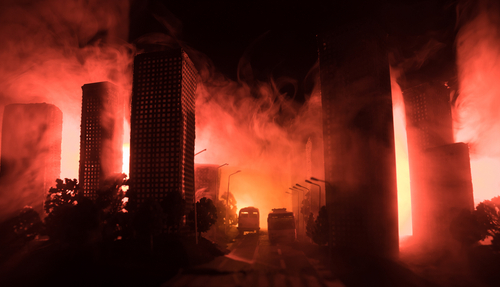As tensions with Russia escalate, European countries are reconsidering conscription to bolster their defenses. Nations like Germany, France, and the Baltic states are leading this charge, driven by the ongoing conflict in Ukraine and increased Russian threats.
Since Russia's full-scale invasion of Ukraine in 2022, Europe has faced a stark reality check on its defense capabilities. The conflict has revealed significant gaps in military readiness, prompting a shift back to traditional defense policies, including compulsory military service.
The Republicans & President Trump Need to Start Talking About WW3 & the Military Draft#ww3 #militarydraft #2024elections pic.twitter.com/xnG8HxU7QL
— APN (@apntruth) July 10, 2024
Historically, conscription was phased out across much of Europe following the Cold War, deemed unnecessary in a seemingly stable geopolitical climate. Between 1990 and 2013, 24 European countries abandoned mandatory military service, moving towards smaller, professional armies. However, the recent conflict has renewed focus on manpower, with countries recognizing the need for larger, conventional forces to counter potential Russian aggression.
Finland, Norway, and the Baltic states never fully abandoned conscription, and their recent experiences highlight its strategic value. Finland maintains a robust conscription system, drafting around 27,000 citizens annually, ensuring a steady influx of trained personnel ready to defend national interests.
How close to ww3 and the draft. Holy fuck we are all lucky af. https://t.co/ABbbHyDbnk
— Stone (@__The_Stone__) July 18, 2024
Germany and France, however, are revisiting conscription policies after years of professionalization. In Germany, debates are intensifying about reintroducing mandatory service to address troop shortages and aging military personnel. French President Emmanuel Macron has similarly hinted at potential reforms to national service, aiming to enhance military readiness amid growing security concerns.
This resurgence of conscription discussions is not without challenges. Modern European societies, accustomed to volunteer-based military service, may resist compulsory enlistment. Moreover, the logistics of re-implementing conscription—training facilities, personnel management, and integration with existing forces—pose significant hurdles.
Nonetheless, the strategic imperative is clear. With Russia's aggressive posture, exemplified by continued military actions and rhetoric against NATO and European nations, the urgency for enhanced military preparedness is palpable. NATO allies are bolstering their quick reaction forces, with over 500,000 troops at high readiness, signaling a robust deterrent against potential Russian advances.
As Europe grapples with these security challenges, the return of conscription represents a critical component of a broader strategy to ensure stability and deter aggression. Whether this shift will gain widespread acceptance remains to be seen, but the geopolitical landscape's demands are driving a significant re-evaluation of Europe's defense policies.




